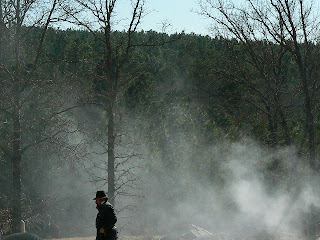I watched a biographical movie about Martin Luther King last weekend. Tonight is also the premier of the PBS documentary ‘Freedom Riders.’ After watching the movie, it felt like peeling a layer and seeing something unpleasant that one did not think exited. It all started with the book ‘The Secret Life of Bees.’ Such an innocent title to learn about segregation and race relations in the Deep South. If one is from another continent, one is ignorant of the struggles faced by the African-American community preferring instead the sanitized version of Hollywood movies. For instance, one watches Sidney Poitier in the brilliant film ‘In the Heat of the Night’ or film clips of MLK speaking in front of the Lincoln memorial; thinking that these were the only notable incidents in the struggle. What is missing is the day to day violence inflicted on anti-segregationists in places like Alabama and Tennessee. The movie on MLK was an eye opener that reveals the violence one never thought existed in such as country like this one.
Perhaps the shocking thing is realizing that bigotry and prejudice exists in the most wholesome of peoples. Watching the scenes where non-violent protestors are hosed down by fire houses, tear gassed, attacked by dogs and beaten by police and racist bystanders is heart wrenching. Looks are deceiving and one could be fooled into thinking that all is well but in fact one’s next door neighbor or co-worker can be a racist or member of the Ku Klus Klan. The ugly face of racism is again rearing its face in the recent personal attacks on the president. The brilliance of the anti – segregationist struggle is to follow Mahatma Gandhi’s non-violence movement. A frontal violent assault would have failed but the act of putting a mirror in front of a people and, thereby, transform their consciousness is unbeatable. The ugly spectacle of Bull Conner ordering the assault on children and non-violent protestors turned the tide towards transformation.
The wave of anti-segregation, civil and voting rights could not be overturned if advanced via a non-violent strategy. But like the civil war, it was the southern states that needed to be transformed again. Most of the freedom riders came from the Northeastern states especially the non African Americans (i.e. white folks). It was this integrated and non-violent action that changed the minds of most Southerners. But not everyone it seems. Perhaps it was the killings of the Kennedy brothers and MLK when people started to feel disgusted about segregation and the general brutality of the times. It was the realization that the dream of the founding fathers may be a hoax unless people stand up. It’s the transformation of ordinary Southern folks like the young heroine in ‘The Secret Life of Bees’ that really counted. Gandhi said the struggle of the African – American minority against the white majority will be the true test of his ideas on non- violent struggle.
Last weekend, it was reported that South Asian Indians have overtaken Filipinos as the second largest ethnic group in the country. It’s an interesting fact that the people of Gandhi would also benefit from the anti-segregationist victory. Sadly, Gandhi and non-violence proponents like MLK would perish under violent circumstances. But the world is a better place and more diverse. For instance, the governor has an Indian ancestry while the president is African American. Perhaps the real story about this country is about diversity and not about being a super power or being an economic power or being the best military force in the world. It’s not about having the most number of millionaires or billionaires or Nobel Prize awardees or brilliant economists, writers or intellectuals. Perhaps it’s the story of a people’s transcendence of their own shortcomings to become better. It’s no longer a white country but a more diverse and perhaps forgiving one. It’s a microcosm of the world.
Maybe this is the underlying theme of the country. Its greatness is not the economic theories of capitalism and free markets but diversity. Diversity that is enforced by a true democracy. But before one gets all fired up and spiritual, one needs to have faith in order to survive. It’s like a sort of hope of the Islamic radical who believes in the treasures of heaven when he blows himself up. It’s the belief in a better tomorrow that one persists in believing in order to remain in this country. A country that often has episodes of senseless violence and inequality. But what does one care except to hope that tomorrow will be good for one’s children. One has turned a corner once one understands the violent past of the South. One no longer becomes a tourist but to be amazed and vigilant that such transcendence has occurred. One day one should pay homage to this struggle and the PBS documentary is a step in that direction. One wonders why it took so long.




No comments:
Post a Comment